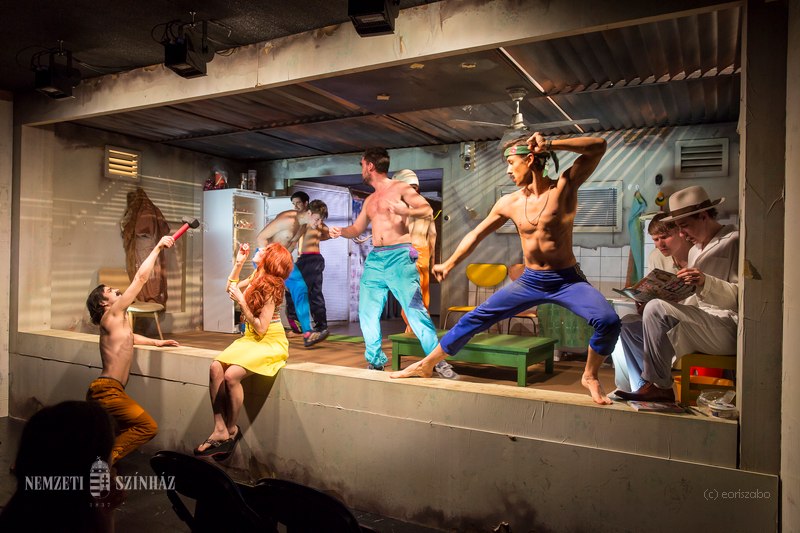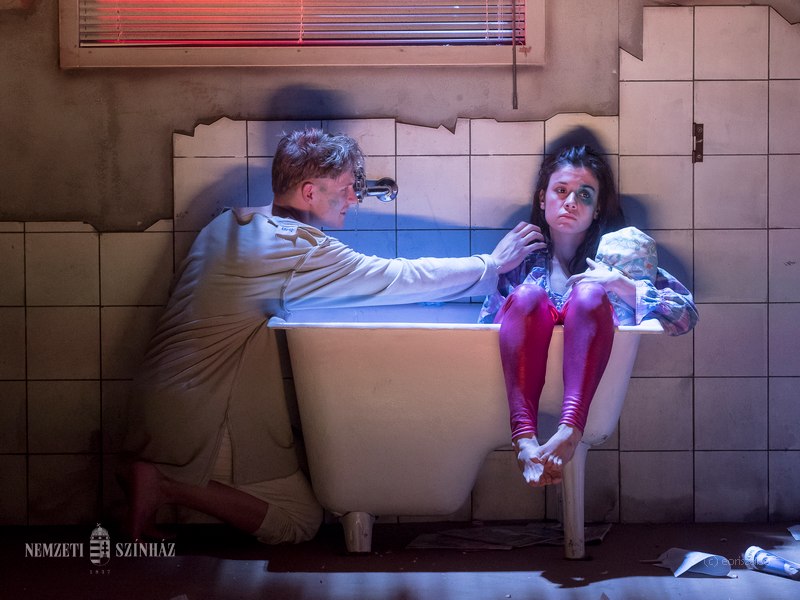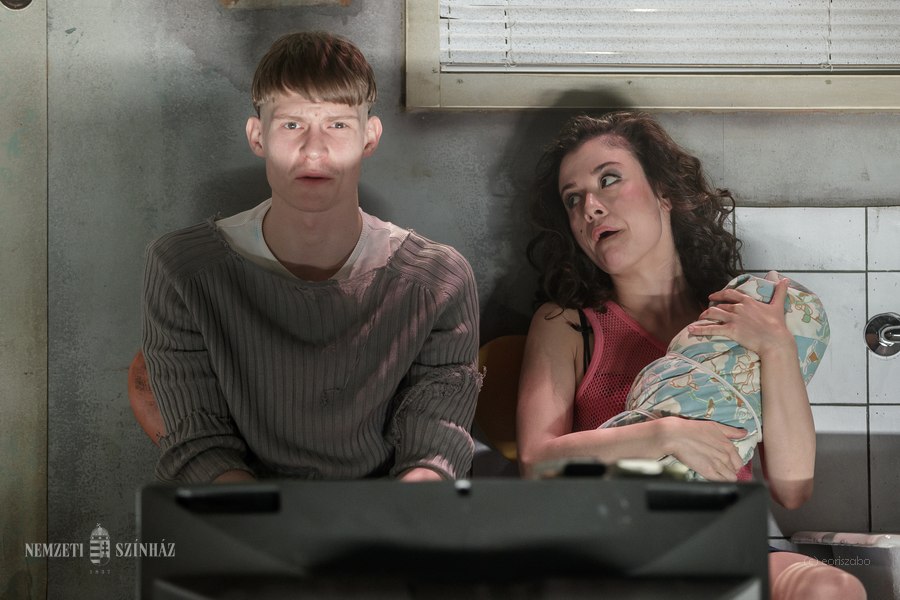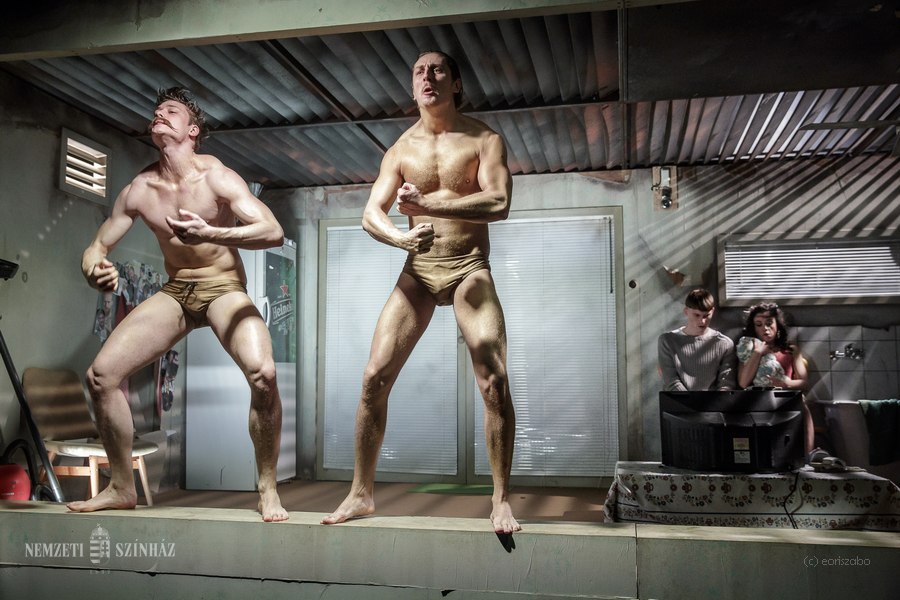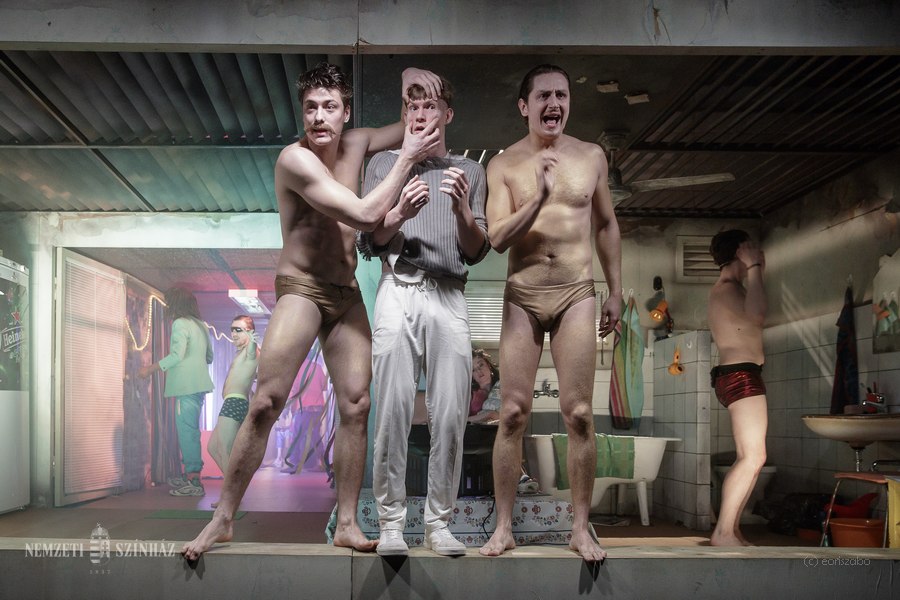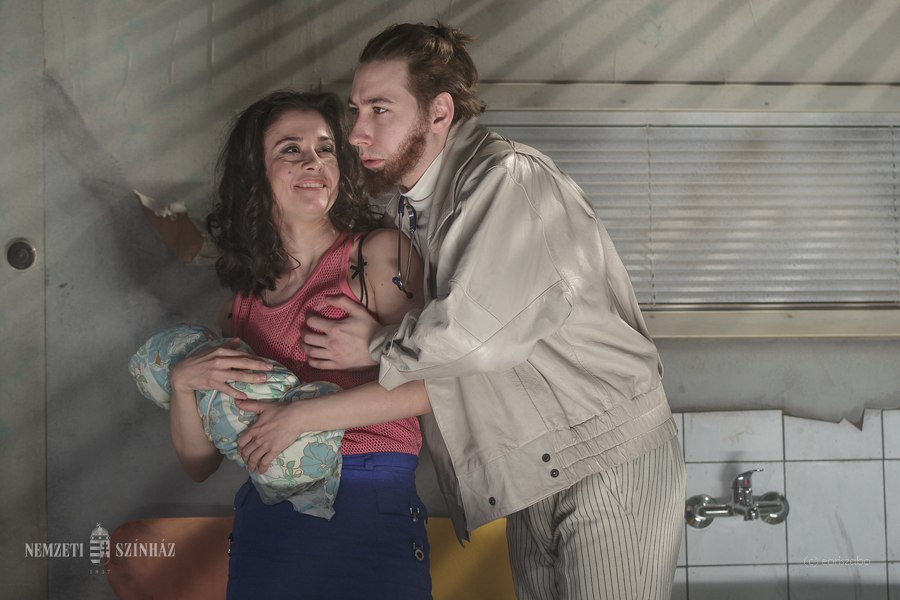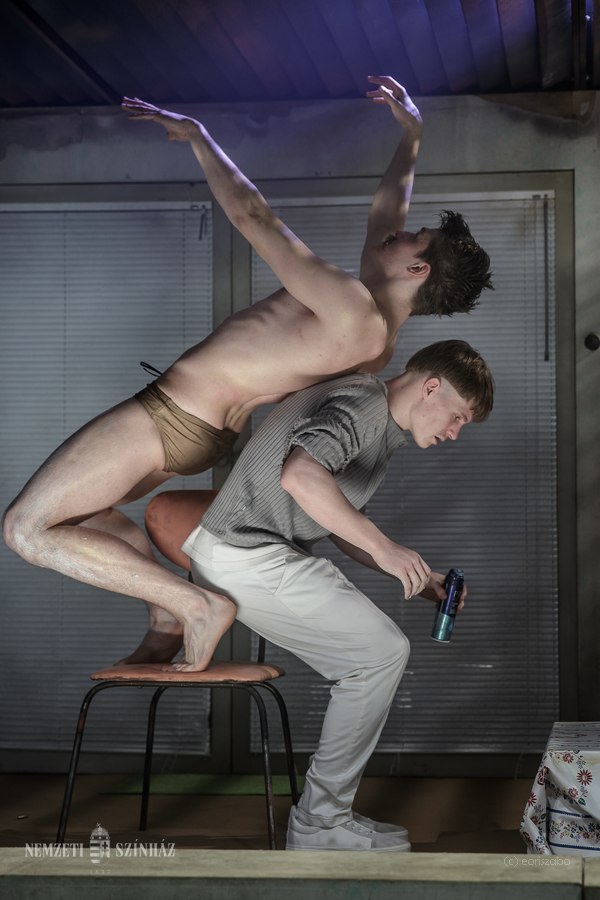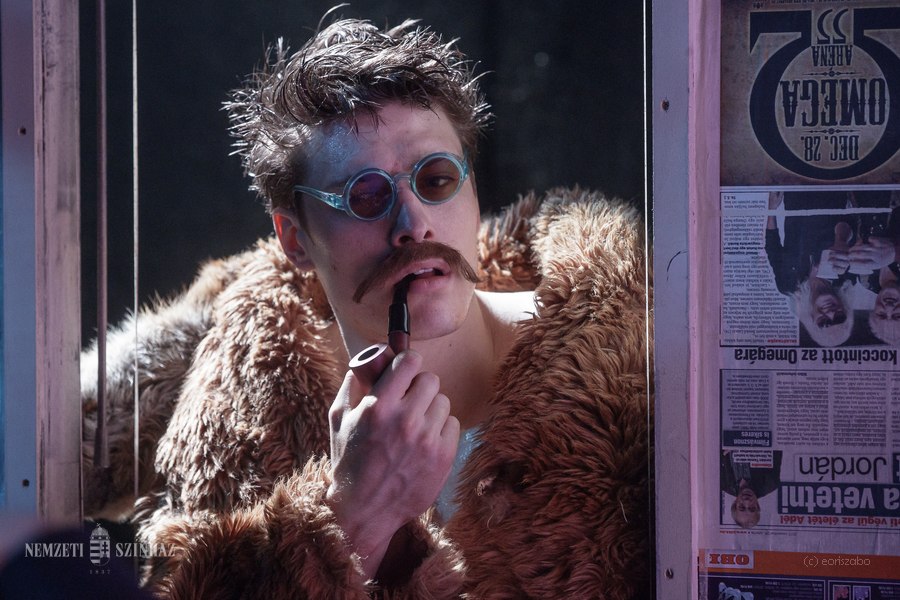“WOYZECK”
Georg Buchner
The protagonist is the epitome of the low man who is unable to navigate the war and the vices of society. A “paper boat in the middle of the ocean”, he is failed by his environment, mostly consisting of tight-lipped, burned-out characters who are gripped by anxiety, destructive instincts and love that has gone sour. Redemption offered in the form of a way out of this situation is constantly at arm’s length, but its closeness only accelerates Woyzeck’s fall towards the tragic ending. Like an entranced circus artist, he is overcome by gravity with an inevitable finality.
The young team of creators is looking for answers to the question whether we can still recognize and relive our emotions and our humanity in our apparent loneliness, battling for ficticious ideas. Which ideas can be considered natural and which ones are the destructive products of artificial social processes?
“Certain occasions are, how shall I put it, too significant to be exploited. Certain things will be shipwrecked on themselves.” – Franz Kafka
Woyzeck
Attila Vidnyánszky Jr’s production of Woyzeck has some very distinctive concomitants. The performance, which has been a huge success at the National Theatre since its premiere on 11 April 2018, not only uses powerful sound and light effects, but also other signs of Woyzeck: before the start, there is usually a queue at the box office for those hoping to get in, and the audience is younger and noisier than the average theatre audience.
Self-absorbed Woyzeck? Yes, it is probably this special atmosphere that has made the performance a cult hit. Woyzeck is usually staged and filmed in a sombre tone, but there is also an age specificity to the National Theatre’s performance. Among the creators of the famous Woyzeck adaptations, Werner Herzog 37, János Szász 36, Robert Wilson (with Tom Waits) 59, adapted fragments of text by 19th century German author Georg Büchner about the young German barber who indecisively balances on the border between sensibility and schizophrenia. Unlike these middle-aged creators, all the actors in the performance are in their twenties and thirties, as is the director Attila Vidnyánszky Jr.
The performance itself exudes this freshness: the creators said that they wanted to create a clip-like production, because their generation no longer (primarily) lives their lives based on the experience of reality, but they consider the traces of the re-mediatized world (internet, TV, radio) as “reality”. There is a huge danger in this, because while pop culture, superhero movies and TV shows permeate our lives, we are at a loss to face reality. This cluelessness is the real drama of Woyzeck, according to the creators of the play. How can someone be left out of the flood of stimulus flow that surrounds us? – they translated Büchner’s nagging dilemma into their own experience this way: How does the environment turn someone into a murderer? During the performance, Woyzeck’s distinguishing feature is that, unlike the other characters, he does not enter into the TV reality, but sits sadly and frustrated, jealously watching the infidelities of his wife, Marie, played by Ágnes Barta. Woyzeck tries to stay out of the drift of the performance, which is captivating for all spectators. It’s not an easy job, but it’s really unshakable.
Attila Vidnyánszky, the actor-director of Transcarpathian origin, knows several young people who have experienced the front in Eastern Ukraine. According to him, it is frightening that while we – like the characters in the performance – are having fun and living a weightless (media) reality, war and vulnerability, which is also the case in Büchner’s Woyzeck, are at our fingertips. And for those who find the National Theatre’s Woyzeck set in a South American panel apartment too juvenile, an interesting addition to the story of the writing: the directors listed may all have been middle-aged when they turned to Büchner’s fragments, but the German writer himself was in his twenties when he put down on paper the story of the Leipzig barber who murdered his wife out of jealousy in 1824. Georg Büchner was therefore of the same age as the National Theatre’s creative staff.
Cast:
Franz Woyzeck – Márk Nagy (guest actor)
Marie – Ágnes Barta
As well as:
Sándor Berettyán
Roland Bordás
Bence Böröndi (g.a.)
Péter Herczegh
Tamás Kovács (g.a.)
Barna Bálint (g.a.)
Martin Mészáros
József Kovács S.
Attila Lestyán (g.a.)
László Sebestyén Szabó
Júlia Szász
Domán Szép
Production Designer: Kinga Vecsei Réta
Dramaturgist: Miklós H. Vecsei
Music: Szabolcs Mátyássy
Stage manager: Márta Kabai
Whisper: Szilvia Kabódi
Assistant director: Ákos Trimmel
Director: Attila Vidnyánszky Jr.
Attila Vidnyánszky, Jr.
Attila Vidnyánszky, Jr., is a director whose plays guarantee viewership, for the simple reason that they offer a different view of the world as we know it. They are thoughtful, witty, smart, intellectual – yet not vulgarly provocative.
Vidnyánszky graduated in Directing from the Budapest Academy of Drama and Film. While still studying directing, he also tried his hand as an actor at the Comedy Theatre and the Hungarian National Theatre. After completing his studies, the theatre public recognised him as an actor delivering unusual interpretations of classical works in theatres in Budapest and Debrecen, among others. The most impressive among them have been in Bulgakov’s “Ivan the Terrible” and Shakespeare’s “Timon of Athens.” The theatre troupe he founded at that time was called “The Stalker Group.” Vidnyánszky, Jr. is a respectable name in directing today. We have the opportunity to check it out at this year’s INFANT, seeing his widely praised “Woyzeck”.
photo: Eöri Szabó Zsolt
